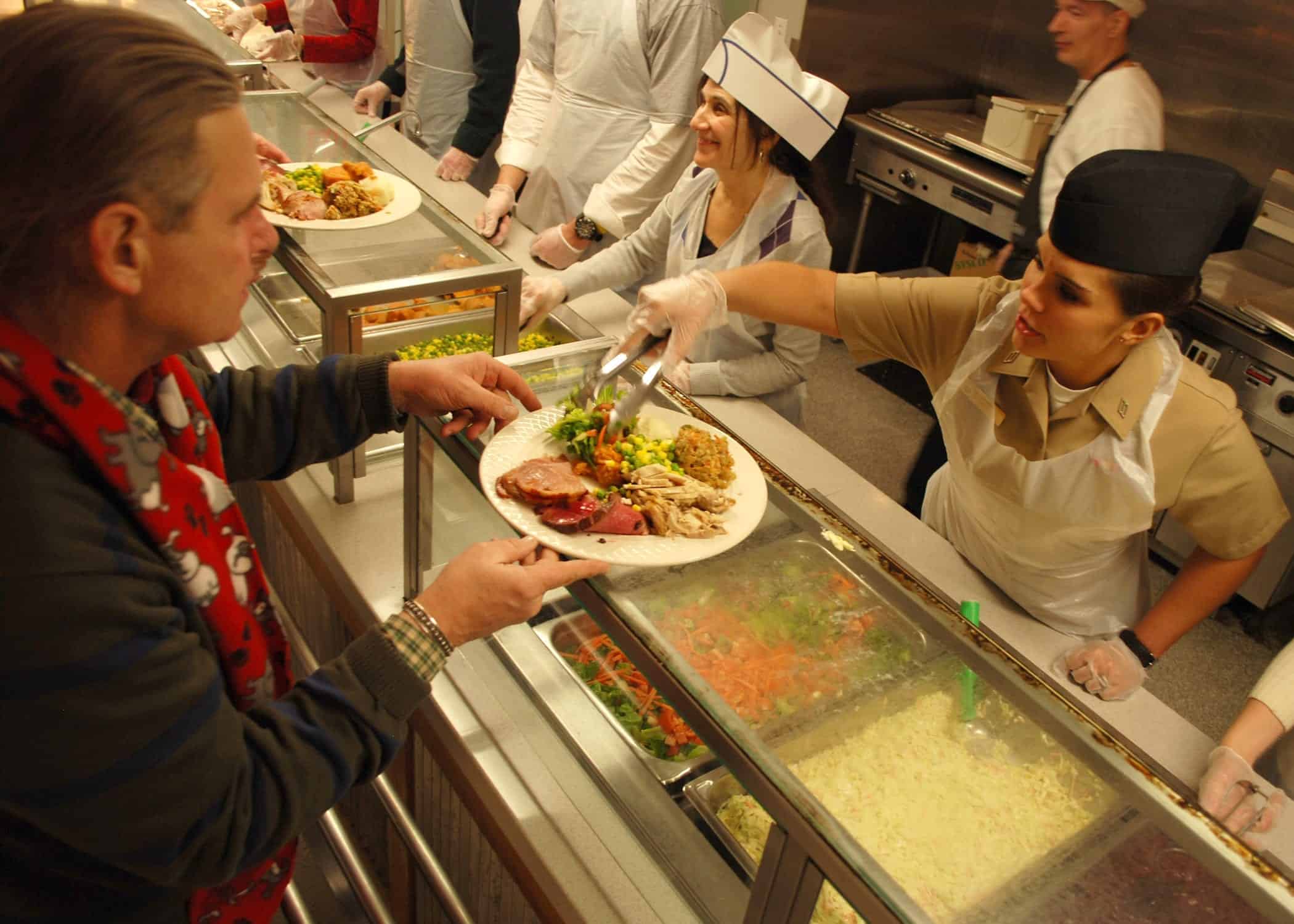Christmas is about giving, not receiving


101225-N-7642M-082
BOSTON (Dec. 25, 2010) Gunner’s Mate Seaman Kali Morris, assigned to USS Constitution, serves Christmas dinner at the New England Center for Homeless Veterans. Constitution Sailors have volunteered 1,113 man-hours to the center since establishing a partnership in April. (U.S. Navy photo by Mass Communication Specialist 3rd Class Kathryn E. Macdonald/Released)
Author: elisabeth sahlmueller – contributor
Although Christmas is often considered the most wonderful time of the year, this isn’t true for everyone. Two-hundred thirty-two Regina citizens are homeless and many others within our city are also experiencing difficult financial times. These people are unable to acquire the basic necessities, such as food and shelter, and don’t have the possibility of celebrating Christmas as they would like to. It can be easy to overlook other people’s problems in the excitement of the holiday season, but Christmas shouldn’t be all about what presents a person receives; instead, people need to think about what they can do to change someone else’s life for the better.
One of the major problems with Christmas is the materialistic attitude it creates in people because there is a belief that spending a lot of money on someone will prove how important that person is. This is ridiculous because it only creates more unnecessary stress for everyone, and Christmas is not supposed to be a stressful time. Also, this way of thinking makes people more self-absorbed and allows them to turn a blind eye towards other people’s challenges and hardships. I strongly believe that people who are well-off should make an effort to help others who are not as fortunate.
The Salvation Army Christmas Kettles are a simple and easy way to help someone who is struggling within our community. Dozens of volunteers willingly give up their time to stand and collect funds, for basic necessities like food, shelter, and providing care for people undergoing addiction recovery. With multiple kettles set up throughout Regina, it’s likely that everyone has passed by one at some point. Next December, please consider dropping some loose change into a kettle; every little bit counts and can make a huge difference towards improving someone’s life, or simply giving them the resources needed to survive.
Another way to help is by getting involved with Candy Cane Lane, “Regina’s Premiere Holiday Light Display,” as a visitor, or volunteer. This is the third year that this light festival has been around. Since its debut, it has grown from seven houses to 170. The main house is a definite must-see and visitors can walk through both the front and backyard by giving either a food, or a monetary donation. When asked where the idea for Candy Cane Lane came from, Brian Runge, executive director of the festival, explained that the idea came from a similar event that took place in Edmonton. However, the two differ because this one features “a walk-through concept that includes displays not visible from the street, or those driving by, which makes it more of a community festival, rather than just a display.” According to Runge, the festival’s main goal is “to promote the ‘spirit of giving’ and raise awareness for food security in our city because the commercialization of the holiday season can overshadow the needs of those in our community, who are hoping to have just the basics to survive.”
In December, I volunteered at Candy Cane Lane with my brother and was overwhelmed by how supportive everyone was of this light festival. Two years ago, I toured the lane and was in awe of all the Christmas lights and decorations, but it’s a different experience volunteering and getting to see huge crates full of various food items. A huge thank you goes out to the 14,266 people who came through Candy Cane Lane this year, because thanks to their generosity, 13,225 pounds of food and $1,500 was raised.
For young kids, Candy Cane Lane is more than just a magical night of enjoying Christmas lights, decorations, hot chocolate and cookies. It allows parents to teach their children the importance of helping others; a lesson that will hopefully stay with them as they get older.
I hope that all U of R students, staff and professors had a safe and restful holiday season and wish them all the best for 2016. In addition, I hope everyone finds a way to help someone next year. To quote Dr. Seuss’ How the Grinch Stole Christmas, “Maybe Christmas doesn’t come from the store… maybe Christmas means a little bit more.”









